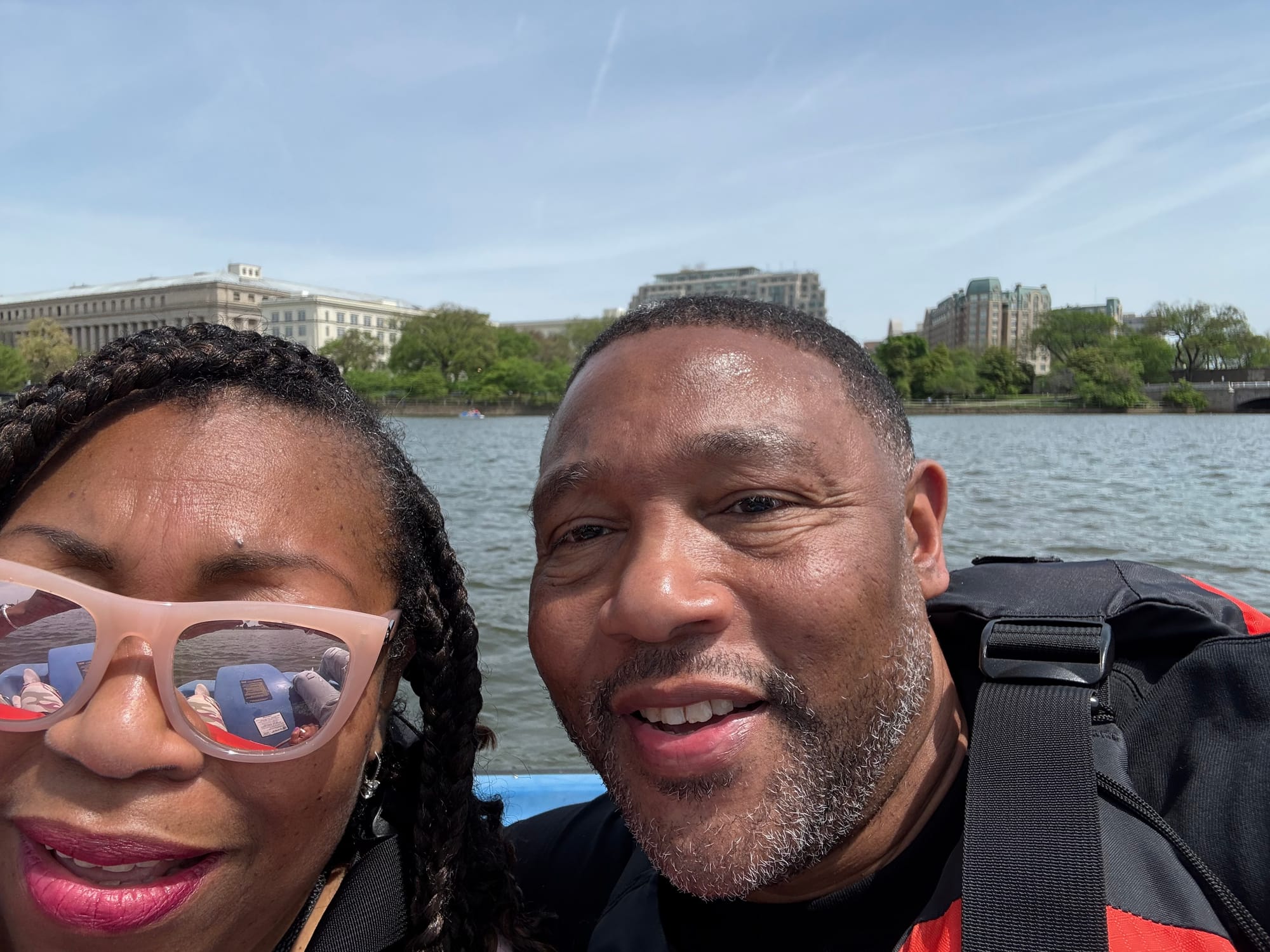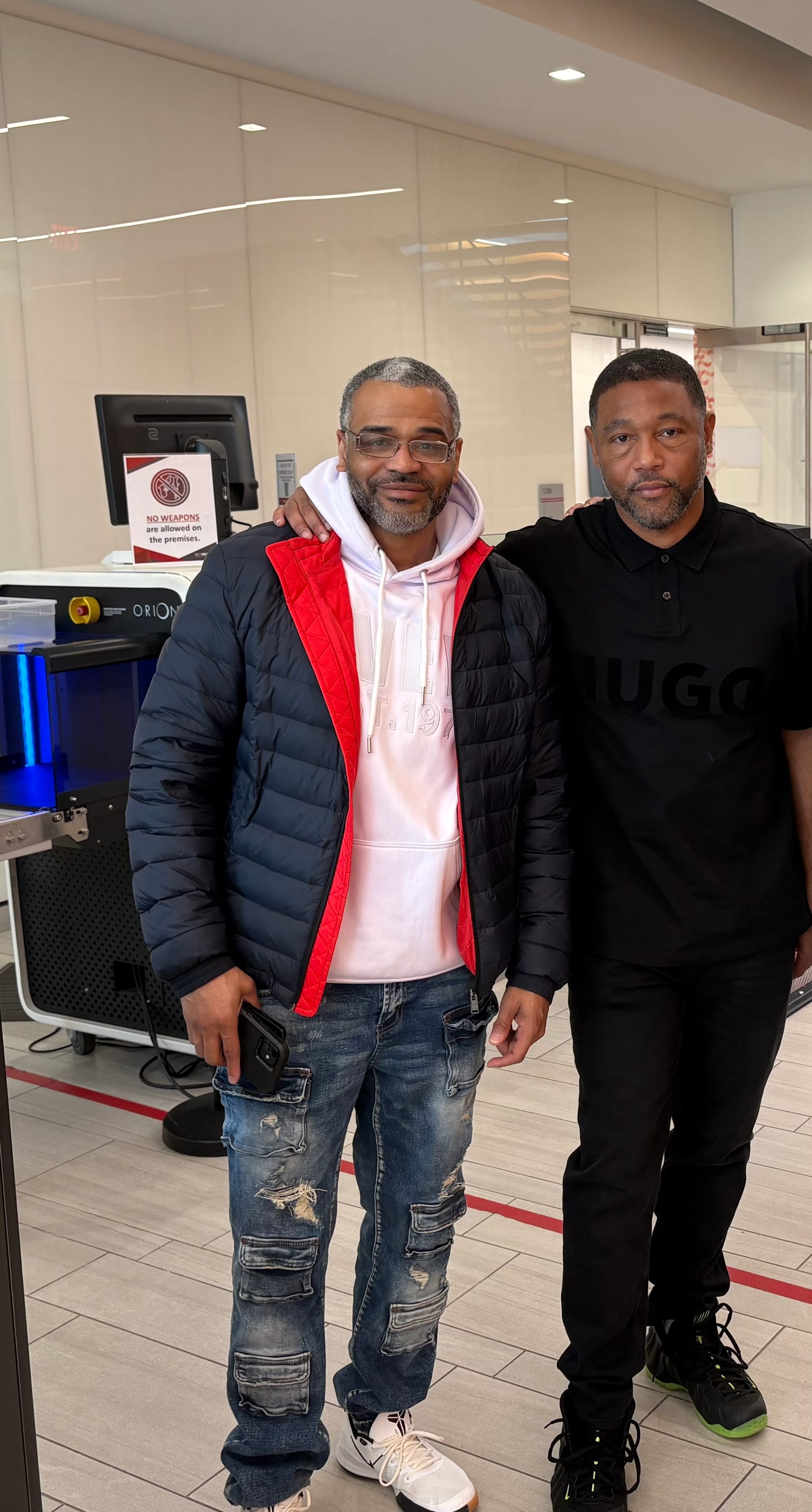Wilson Building Bulletin: To fight (Congress) or not to fight, that is the question
D.C.'s elected officials need to decide whether to defy Congress – or defer to it – over a tax bill.
D.C. has a well-deserved reputation for providing comprehensive reentry services to returning citizens, but they're still not doing enough.

After 30 years of yearning, hoping and praying for this moment, I’ve finally been released from federal prison (where all D.C. residents are sent for incarceration, since the District doesn’t have its own prison). And I am loving every moment of it. Daily, people ask me how my reentry process is going, assuming it must be difficult. And I tell them I have no worries or complaints.
I have a family who is able to provide me with housing, financial support, and pretty much whatever else I need. I have close friends who are showing me the ropes and taking me shopping. And while I don’t have a steady income yet, I co-founded a non-profit organization while I was still in prison and thus have a professional “home” and prospects for funding. I am blessed. I have options.

Sadly, this isn’t the case for everyone; I am among the fortunate ones.
Although Washington, D.C., has a well-deserved reputation for offering a comprehensive network of reentry services, it’s not enough. There are significant gaps and no coordination among the various organizations serving returning citizens. Watching my friend Jay struggle to find some security has made what’s missing in D.C. glaringly obvious. Like many other returning citizens, especially those who come home after decades in prison, Jay doesn’t have my strong support system and needs everything – a job, housing, financial support, etc. – and trying to find it all by himself is daunting. (For someone with a mental health disability or substance use disorder, the challenge is both more daunting and easier. For some reason I can’t figure out, there are more services for persons with these specific problems – perhaps because it’s assumed that the rest of us will be fine on our own.)
Yes, there are a multiplicity of services that offer parts of – or steps toward – what he needs, but while some (like job readiness programs and ID services) are well advertised, others are not and are only known via word of mouth. The result is that we must run around like hamsters on a wheel, wasting a lot of time and money for transportation, going from place to place, to assure that we discover what we can get.
A case in point is laptop donations. Ask around, and you’ll hear that “I got one from such-and-such organization,” but call that place and you hear, “We don’t offer that anymore.” At the opposite extreme is job-readiness training; there are about five such programs offered by the same number of organizations, but no advice on which is best for those with specific needs or interests. So, we end up running from program to program, trying to figure that out for ourselves. Or, we take all of them, even though they don’t offer us anything different, because that’s the only way to get cash assistance.
The same is true for services that offer assistance in getting vital documents such as birth certificates and IDs; I chose one of these services rather randomly, and ended up having to wait more than two months to receive my photo identification. Without that, you can’t do anything – like make a doctor’s appointment or open a bank account (a paper copy won’t do). And then there is housing! If you don’t have an appropriate place to stay (in a safe neighborhood, no exposure to drugs, supportive family members, etc.), there are almost no options that are available immediately upon release and for long enough until you can get a housing voucher (we know some people who have been waiting for more than a year) or earn enough income to pay market rent in gentrified D.C. And no, shelters are not the solution. They are unsafe and do not allow personal belongings to be securely stored.

So, while this should be one of the happiest times in Jay’s life, as it is for me, he deals daily with the frustration and anxiety of having to ride the metro all over the city and still not find the support he needs. This affects his mental and emotional health, and thus his prospects for successful reentry.
What is the answer? Two ideas come to mind: First, each returning citizen needs a true case manager who assesses their health, social skills, aptitudes, etc; maps out an action plan; and closely tracks their progress (not waiting for them to report what’s not working, for example). However, this requires coordination with other organizations and government agencies, and this does not appear to happen. I’d bet that coordination among the plethora of service providers would also help by reducing duplication and using the saved resources to fill gaps like cash assistance, immediate housing, and laptops.
Second, it is clear to me that neither the District government nor the other entities that fund services in this space are asking returned citizens what’s working, what’s not, what’s still needed, and what should be prioritized. If they did, D.C. would have an umbrella strategic plan for serving this population that guides how the money is spent and who offers what services.
This leaves guys like Jay to fend for themselves, running from organization to organizations hoping to find what they need. But, the bigger issue is that this problem and others would have been identified if a broad sample of recently returned citizens had been asked, by independent evaluators, how the government and the various other service providers are doing and what is missing. Or better yet, why not convene a randomly chosen sample of this population in a “citizens’ assembly” to discuss our experiences and make policy and budget recommendations to both the D.C. Council?
Now, that would be real democracy.
With your help, we pursue stories that hold leaders to account, demystify opaque city and civic processes, and celebrate the idiosyncrasies that make us proud to call D.C. home. Put simply, our mission is to make it easier — and more fun — to live in the District. Our members help keep local news free and independent for all: